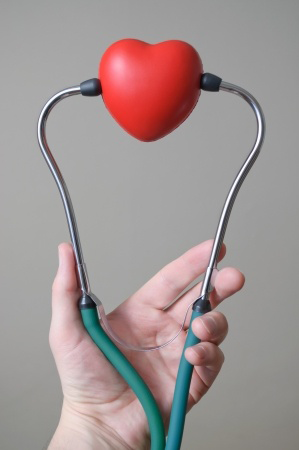 Heart health is essential for living well. This is true for people of all ages, but especially for seniors. The umbrella term “heart disease” covers many conditions affecting the heart and blood vessels, including heart failure, an irregular heartbeat, valve problems and plaque buildup in the arteries.
Heart health is essential for living well. This is true for people of all ages, but especially for seniors. The umbrella term “heart disease” covers many conditions affecting the heart and blood vessels, including heart failure, an irregular heartbeat, valve problems and plaque buildup in the arteries.
There is a mountain of highly scientific information about senior heart health. In fact, there is so much information that it would take you a lifetime to read it all. To save you time, here are ten fast facts about senior heart health that you can use to move closer to your goal of living well in your senior years.
1. Heart disease is a major killer of Americans
About one in every four deaths is the result of heart disease, according to the Centers for Disease Control and Prevention. In fact, heart disease is the leading cause of death for both men and women.
2. There’s no such thing as “too early” when it comes to heart health
Senior heart health is a lifelong goal that begins even before you are born. An embryo’s first heart cell begins to beat as early as 4 weeks, according to Cleveland Clinic.
3. Heart disease is common, but heart cancer is rare.
Because the cells of your heart stopped dividing early in your life, unlike your other organs that replace old and worn out cells with new ones, you have the same heart your whole life. In fact, that heart cell that started beating at four weeks is still beating inside your chest today. That means less chance for new, cancerous cells to appear.
4. Smoking, high blood pressure and high cholesterol levels ar key risk factors for the development of heart disease.
Nearly half of all American adults have at least one of those three risk factors. Other risk factors for heart disease include diabetes, being overweight or obese, a sedentary lifestyle, and excessive use of alcohol.
5. Where you live and went to school matters.
Higher education and socioeconomic status is associated with lowered risk for heart health, according to UC Davis Health System.
6. There are 3 major weapons in the fight against heart disease.
- Exercise
- Diet
- Stress management
7. Exercise is the single most important thing you can do to maintain a healthy heart.
Just 15 minutes of cardio endurance activities gives the muscles of your heart a good workout to keep them strong. Cardio endurance exercise includes walking, swimming, climbing stairs, hiking, cycling, tennis, and dancing.
8. People of all abilities can improve their heart health.
Chair-bound seniors can still exercise for a healthy heart, although it requires a little personalization and creativity. Use dumbbells, resistance bands or even cans of soup to build strength, chair yoga to improve flexibility and pool therapy or rapid leg lifts for a good cardio workout.
9. Happiness helps to lower your risk for heart disease.
According to Harvard School of Public Health, chronic anxiety and anger can disrupt the heart’s electrical stability, increase inflammation and accelerate atherosclerosis, also known as hardening of the arteries.
10. Senior heart health is on the cutting edge of technology.
Did you know that the first pacemakers had to be plugged into an electrical outlet in a wall? Today, pacemakers have batteries that last 4 to 12 years. Many modern pacemakers have additional feature which allow them to send information about your heart health straight from the device to your doctor.
A healthy heart is one of the keys to living well as a senior. Achieving optimal heart health takes a commitment to good lifestyle choices, including a healthy diet and exercise. Contact your doctor to learn more about what you could be doing to improve your heart health and better enjoy your golden years.












